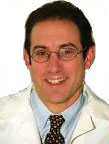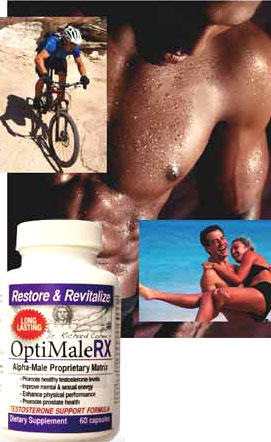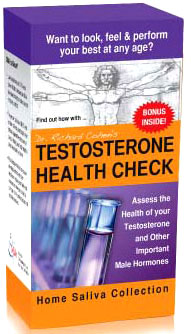
Placing the emphasis on the individual, Dr. Cohen believes in treating each patient through careful evaluation and consideration of their unique goals. Remaining in the forefront of the advancement in medicine, Dr. Cohen has trained and counseled countless members of the American medical community on dietary issues for over a decade and is a leading authority in the use of diet, nutritional supplements and natural hormones and hormone precursors to enhance performance and well-being.
Completing his undergraduate studies at Duke University, where he graduated with honors of distinction, Dr. Cohen went on to obtain his medical degree from Hahnemann Medical University in Pennsylvania. As a licensed physician he has been a member of several professional organizations including the American College for the Advancement of Medicine and the American Academy of Anti-Aging Medicine.
LA’s the Place recently sat down with Dr. Cohen to learn more about the effects of reduced testosterone levels and how men can prevent it from affecting their lives.
LA’s the Place: Why are men showing lower testosterone levels than they were ten to twenty years ago?
Dr. Richard Cohen: You could say modern living is the culprit. Constant, relentless stress, physical activity, vices like smoking and drinking, prescription and “recreational” drugs, illness, lack of sleep can all curtail our normal “ration” of testosterone.
Another issue is the growing problem of elevated levels of male estrogen. Most men don’t know that their bodies produce and depend on small amounts of estrogen. Male estrogen is produced as a natural by-product of testosterone metabolism. There are three main forms—estradiol, estrone, and estriol—with estradiol being the most biologically-active. Obesity, environmental chemicals such as bispheol-A in plastics, soy products, nutritional deficiencies, prescription medications and excessive alcohol intake can all raise a man’s estrogen levels.
High estrogen levels can both directly inhibit the production and activity of testosterone and cause other issues such as sexual disturbances and increased body fat.
LATP: What if anything can young men do to prevent their testosterone levels from decreasing later in life?
Dr. Cohen: The best effects will be achieved when you follow a multi-faceted strategy. These include eliminating or at least significantly reducing the factors that reduce hormone levels, improving your diet, modifying your exercise program, reducing stress and restoring nutritional status. By doing so you can dramatically improve hormonal balance and more importantly the way you look, feel and perform.

Dr. Cohen: Without question! I would recommend that all men assess their bioavailable hormone levels at the age of twenty one to determine a baseline. This is a time in your life when your testosterone levels should be at their highest. Follow-up levels should be performed every two years after the age of 35 or when symptoms of hormonal balance appear.
Competitive athletes can also monitor testosterone levels through saliva on a monthly basis to assess and avoid overtraining.
LATP: It is reported that few men displaying symptoms of low testosterone levels receive treatment. What do you attribute this to?
Dr. Cohen: While medical science has determined that while a man’s total (protein-bound) testos¬terone levels remain relatively stable over time, his bio-available (free) levels gradually decline at an alarming rate of two percent each year beginning at age thirty. This means that a man in his sixties is functioning with only about forty percent of the testosterone he had in his twenties.
But when standard laboratory tests are performed, however, most men typically have only their total levels of testosterone evaluated. Their more important bio-available levels go unchecked.
To make matters worse, most physicians require a diagnosis the disease of hypogonadism (a medi¬cal term used to classify total testosterone levels that fall below a specified laboratory limit) prior to prescribing any testosterone replacement medication.
And lastly, since most men with hormone related issues are not hypogonadal and only moderately deficient in testosterone and therefore not candidates for testosterone replacement therapy, modern pharmaceutical-oriented medicine will not have a solution. As a result, millions of American men who are suffering from symptoms of low testosterone are walking around undiagnosed and untreated.
LATP: In addition to taking OptiMale RX, what are some lifestyle changes men can make to increase their testosterone levels?
Dr Cohen:
• Adopt a testosterone-enhancing diet
• Incorporate physical activity into your daily life.
• Take high-quality vitamin and mineral supplements.
• Lose body fat and increase lean muscle mass.
• Reduce alcohol intake
• Eliminate all medications that are unnecessary for immediate health.
• Try to get eight hours of sleep nightly.
• Get at least one hour of exposure to sunlight daily, especially during winter
• Increase your stress resistance.
More specific information is available in my booklet, “Be All the Man You Can Be” available
as a free download at www.checkmytesterone.com.
LATP: How likely is it that raising testosterone levels by taking OptiMale RX would reduce the need for Viagra?
Dr. Cohen: In most men without disease, erectile dysfunction (ED) is a lifestyle/hormonal problem. By following the steps listed above and using OptiMale RX to help restore healthy hormone levels, most men will be able to restore a healthy sexual desire and function.
Men with diabetes, neurological disorders or hypogonadism may not fare as well and could require medication to restore sexual “plumbing”.

Dr. Cohen: Although there is a growing awareness of the vital role testosterone plays in a man’s overall health, the vast majority of men still don’t recognize the key symptoms of testosterone deficiency. These symptoms include depression, fatigue, low sex drive, irritability, loss of facial/body hair, thinning and/or wrinkling of skin, weight gain, and the weakening of both bone and muscle tissue. Eventually, imbalances of testosterone can set the stage for the development of more serious disease. Low testosterone levels can also disrupt the body’s blood sugar metabolism, leading to obesity and diabetes. Chronic deficiencies may also promote the early onset of osteoporosis and heart disease
LATP: After using the home Testosterone HealthCheck, what is the next step men should take if they discover their levels are low?
Dr. Cohen: If results indicate hormonal imbalances, I would recommend a six week trial of OptiMale RX. OptiMale RX was specifically designed to naturally support and restore healthy hormone production and metabolism. Along with OptiMale RX, I would also recommend that you incorporate one or two hormone-enhancing lifestyle modifications as outlined in “Be All the Man You Can Be.” At the end of that six week period, evaluate how you feel and consider retesting your levels if you have not received sufficient benefit.
Since optimal testosterone levels are only one factor to looking, feeling and performing at your best, it is always recommended to test estradiol levels when assessing testosterone. If sexual issues are of concern it would be helpful to know your DHT levels and for those under mental or physical stress from training, DHEA and cortisol are important.
LATP: How soon will men see positive changes after taking OptiMale RX?
Dr. Cohen: You will begin to see results within one to two weeks. Since OptiMale RX is a restorative product (works with the body to restore natural healthy function) as opposed to being stimulative (directly stimulating hormone receptors) such as with prohormones or prosteroids, the benefits received from OptiMale RX are cumulative over time.
LATP: What is the best reason you give your patients for having their levels tested and taking OptiMale RX?
Dr. Cohen: Why live it at half-speed or as half the man you used to be? Life is short. Don’t wait until you are too old that you forget the vitality of youth!
Restoring hormone levels and combating the hands of time are now in your control. Assessing your hormone health is as simple as collecting a saliva sample and restoring hormonal health can be as easy as two capsules of OptiMale RX daily.
To learn more about low testosterone levels, read our article on OptiMale RX.







